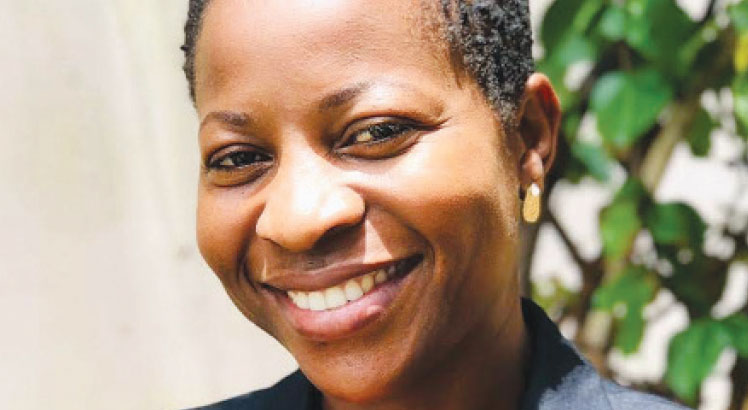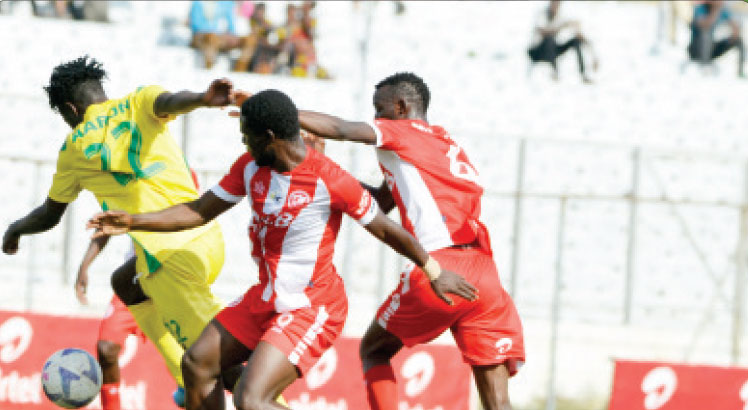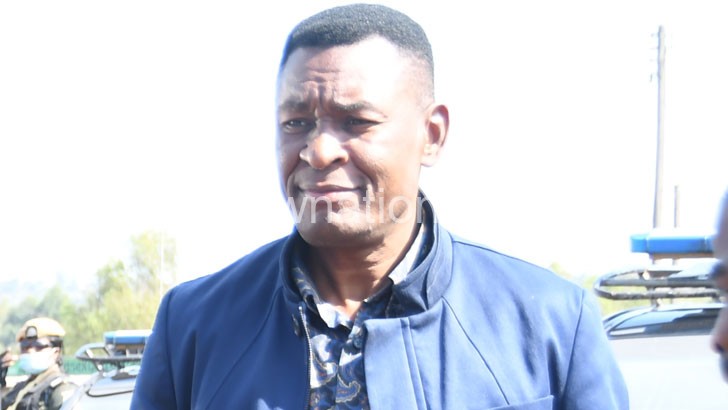Life has a way of pointing people towards their destinies.
This is what happened to Lauryn Sulani, a nurse and founder of the Centre for Down syndrome, Sickle Cell and Autism (Cedossa).
It was founded in 2021 and registered in September 2022 as a non-governmental charity organisation to advocate for people with Down syndrome, sickle cell and autism.
Lauryn had a child with Down syndrome and learnt about her condition at four weeks old.
She recalled going for a postnatal checkup after one week, but they did not diagnose the baby.
But after being visited by fellow nurses a month later, they noted her difficulties with breathing and a weak neck.
They encouraged Lauryn to visit the hospital.
“I remember when I came out of the theatre after delivery, I found my mother alone without the baby. I asked her why the baby was on oxygen since my caesarian section was booked in advance. She just said the baby was having difficulties in breathing.
“Later, I visited the pediatrician over abnormal breathing patterns and cold extremities. This is the day I was told she was born with a congenital abnormality Down syndrome. I was shocked and I cried,” she explained.
Lauryn cried because she could not imagine the pain others felt when ill treated because of having autism and Down syndrome.
She related with what was happening to her and it broke her heart.
After several scannings, the baby was also discovered with a hole in her heart.
Said Lauryn: “Having a child with a heart condition is not easy. It means staying full time with her at home. I could not go to my work or business.
“I tried to figure out how to raise her and I hatched an idea to develop my backyard by building a room as a play centre for children with disabilities.”
The aim was to open it up for mothers around her area once a week with their children to play while sharing experiences.
But when she lost her baby at six months, the nurse decided to carry on her vision.
“I had to understand the diagnosis, knowledge gap among mothers, failure by some health personnel to diagnose the problem earlier and stigma in our communities which prompted me to establish Cedossa,” she said.
Her vision is to ensure persons with Down syndrome and autism are accepted and enjoy their human rights like anyone else.
Through her organisation, Lauryn empowers people with Down syndrome and autism about their human rights through advocacy, skills development, psychosocial counseling and training.
She also provides skills for managing the conditions.
Lauryn is advocating policy formulation, review and implementation in response to the human rights of persons with disabilities.
And to influence positive attitude in communities towards people with Down syndrome and autism, she works with government, churches and other non-governmental organisations.
“Since the establishment of Cedossa, we have identified more people with Down syndrome in Lilongwe.
“We have sensitised parents and guardians on how best to deal with autism and Down syndrome in their homes. We provided them with psychosocial counselling,” she mused.
Lauryn added her organisation provides school materials to enable parents to send their wards to school.
She noted that raising a child with Down syndrome is a challenge which requires patience, love, commitment and resources since their milestones and development are slow.
“It becomes more challenging when they are born with other health complications such as difficulties in breathing, congenital heart problems and digestion problems.
“My baby had an immature respiratory system and produced an abnormal sound when breathing. The hole in her heart increased the difficulties in breathing. She also had congenital muscular torticollis [a weak neck] whereby a favourable position for her was sleeping,” she said.
Lauryn further said feeding was also a problem because she could easily get choked and sucking was unsuccessful due to poor muscle tone.
The mother observed that her baby failed to gain weight because of the heart problem and was admitted to the Nutritional Rehabilitation Unit clinic.
Another challenge she faced was the treatment by some service providers who neglected them because they became frequent visitors to the hospital.
She added that society was supportive, except for a few who claimed that having a child with disability is a curse or punishment.
But since Cedossa’s inception, they have reached out to over 120 families that have individuals with Down syndrome and autism.
“The smiles we bring to the families and individuals through our initiative are inspirating and it feels great.
“It’s encouraging to see some of their skills sharpening and we hope that one day, they will be productive in society,” she said.
Her plans are to influence positive attitude towards people with Down syndrome and autism.
She wants to research on how many people in Malawi have Down syndrome and autism.
Her initiative is self-funded, but they recognise the importance and impact of external funding to amplify their efforts.
Lauryn said they are exploring opportunities for sponsorship, partnership and request concerned citizens, organisations, companies and donors to consider them as a valuable channel to support and uplift people with Down syndrome and autism.
“One of our strategic plans is to visit well developed countries to understand and learn from their methodologies in supporting individuals with Down syndrome and autism.
“We believe we can adapt and deploy the most effective strategies for our unique context. However, such endeavors require financial support and we genuinely hope that well-wishers and philanthropic entities will step forward to enable this transformative journey,” she said.
To mothers who hide their children with disabilities, she encourages them to embrace them because their love and dedication inspires the children.
Lauryn advises government to train service providers such as the media, teachers, police, hospital staff, community and religious leaders on issues of Down syndrome and autism.
“I believe government can lead in launching public awareness campaigns to educate the population about Down syndrome and autism through workshops, seminars, and information materials distributed in schools, communities and health care facilities,” she said.
Lauryn also encourages the hiring of individuals with the conditions as a way of reducing stigma.
On balancing her career and family, Lauryn attributes it to time management.
“The hardest decision I have made in my career was to stop my full-time job and start this initiative with limited resources.
“I have dedicated all my time, life and resources to the autism and Down syndrome community,” she said.
Lauryn was born on October 20 1983 and she is the first born in a family of two.
She comes from Kajawo Village, Traditional Authority Kadewere in Chiradzulu.
She is married to Nkhwachi Makwakwa and has two children, Nthanda and Yewo.
After completing her secondary education at Mlanda Girls Secondary School in Ntcheu, she got her certificate in nursing at Nkhoma then later went to the Malawi College of Health Sciences for Midwifery in Zomba.
Then she joined Skyway University for a degree in public health in 2018.
Her role model is Ruth Mkutumula, country director of Disabled Women in Africa (Diwa).
The post Lauryn sulani: founded down syndrome, sickle cell and autism centre appeared first on The Nation Online.
 Moni Malawi
Moni Malawi 

